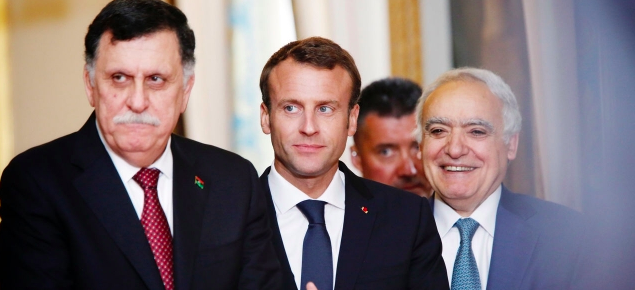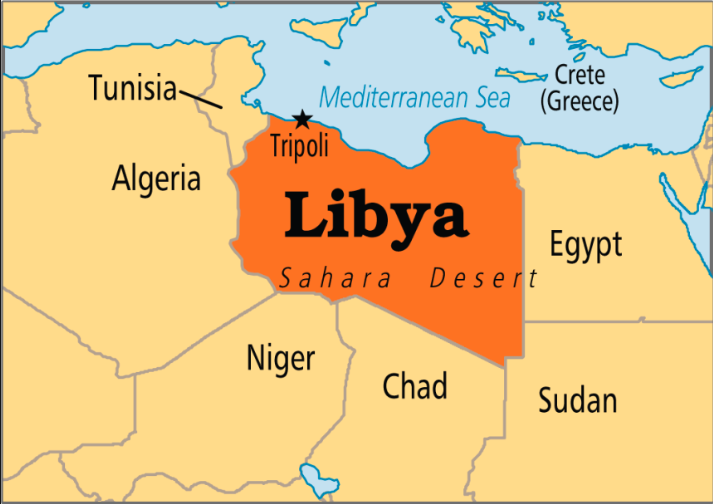Libya’s Path to Peace
November 13, 2018 | Expert Insights

The UN’s plan offers the best hope of ending Libya’s chaos, but it is moving slower than many had hoped. Italy and France are making things more complicated.
Background
The State of Libya is a country in North Africa and has the 10th-largest proven oil reserves of any country in the world. Libya became independent as a kingdom in 1951. A military coup in 1969 overthrew King Idris I. The coup leader Mohammed Gaddafi ruled the country from 1969 until he was overthrown and killed in the 2011 NATO invasion of Libya. Two authorities initially claimed to govern Libya: the Council of Deputies in Tobruk and the 2014 General National Congress in Tripoli. After UN-led peace talks between the Tobruk and Tripoli governments, a unified interim UN-backed Government of National Accord was established in 2015, and the GNC disbanded to support it. Parts of Libya remain outside either government's control, with various Islamist, rebel and tribal militias administering some areas.
In 2011 NATO members in effect acted as the air force of the revolution that toppled Mohammed Gaddafi. The operation was led by France and Britain, with the participation of Italy (Libya’s former colonial master) and America leading from behind. Soon after Gaddafi was overthrown, the Europeans stood by as Libya descended into a civil war that left it shattered and ruled by militias.

Analysis
Libya is the preferred jumping-off point for migrants hoping to reach Europe. Jihadists use its ungoverned spaces to train and plot attacks at home and abroad. Libya’s chaos is destabilising countries all around it, yet the European countries that helped set it down this path are ignoring it, or making matters worse. The UN envoy to Libya, Ghassan Salamé proposes to start putting the country back together with a national conference aimed at getting the country’s rival factions to lay down their arms and agree on a new constitution and electoral law. Following this, elections would be held.
The search for peace is being made all the harder by the rivalry between France and Italy. To begin with, they disagree over which country should lead the peace process. Italy will stake its claim on November 12th by hosting an international conference on Libya. This follows two summits hosted by France. The feud is part of a broader contest. Each sees Libya as part of its sphere of influence, and each has national oil champions whose interests it promotes. More recently, their leaders have come to embody rival visions of Europe: President Emmanuel Macron of France champions an open, integrated and liberal Europe; Matteo Salvini, the interior minister and head of the Northern League (the main force in Italy’s new populist government), calls for a more nationalist Europe that is closed to migrants. Libya is caught in between.
Mr. Macron sees the Libyan peace process as an opportunity to assert his leadership while safeguarding France’s interests in the Sahel, where it has 4,500 troops fighting jihadist groups. He has brought together Fayez al-Serraj, the head of the GNA, and General Khalifa Haftar, the country’s strongest warlord, who dominates a rival government in eastern Libya. France’s efforts have been poorly coordinated with the UN and, at times, undermined it. At the last summit it hosted, it was announced that Libya would hold elections by December 10th, a deadline that has now been abandoned.
Mr. Salvini suspects that Mr. Macron is seeking advantage for the French oil giant, Total, by helping General Haftar. Italy’s own oil giant, Eni, is active in the west, where Italy has also made deals with Libyan warlords to stop people smugglers.
Other foreign powers are also stirring trouble. Egypt, the United Arab Emirates and Russia have all lent political, financial or military support to General Haftar, whom they regard as a bulwark against Islamism. All this has made him only more stubborn. Last year he reportedly refused an offer by Mr. Serraj to share power. This year he said he would “take action” if he did not like the result of elections.
Assessment
Our assessment is that the European countries that helped set Libya down this path have a responsibility, as well as a pressing interest, to help put the country back together and that the best way to do so would be by getting behind the efforts of the UN and its envoy, Ghassan Salamé.
We believe the plan is sound but will not be easy to implement. In our opinion, the difficulty in convincing the country’s warlords to compromise will be one of the biggest challenges in bringing peace to Libya.








Comments